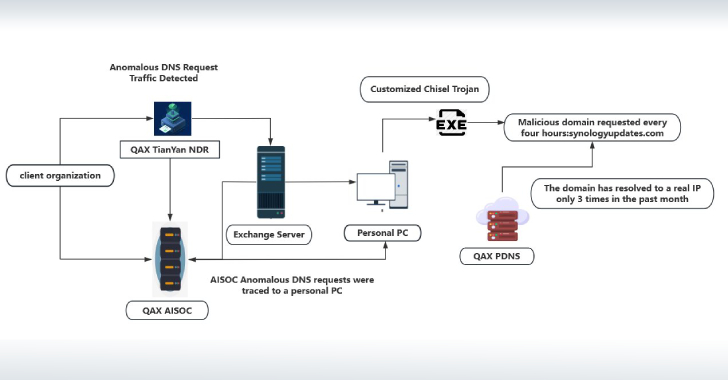Cyber News & Articles

Taiwan NSB Alerts Public on Data Risks from TikTok, Weibo, and RedNote Over China Ties
Taiwan’s National Security Bureau (NSB) has warned that China-developed applications like RedNote (aka Xiaohongshu), Weibo, TikTok, WeChat, and Baidu Cloud pose security risks due to excessive data collection and data transfer to China.
The alert comes following an inspection of these apps carried out in coordination with the Ministry of Justice Investigation Bureau (MJIB) and the Criminal

Alert: Exposed JDWP Interfaces Lead to Crypto Mining, Hpingbot Targets SSH for DDoS
Threat actors are weaponizing exposed Java Debug Wire Protocol (JDWP) interfaces to obtain code execution capabilities and deploy cryptocurrency miners on compromised hosts.
“The attacker used a modified version of XMRig with a hard-“coded configuration, allowing them to avoid suspicious command-line arguments that are often flagged by defenders,” Wiz researchers Yaara Shriki and Gili

Technical difficulties or cyber attack? Ingram Micro’s website goes down just in time for the holiday weekend
Nothing says “Holiday Weekend” like a mysterious IT outage.

Catwatchful stalkerware app spills secrets of 62,000 users – including its own admin
Another scummy stalkerware app has spilled its guts, revealing the details of its 62,000 users – and data from thousands of victims’ infected devices.

NightEagle APT Exploits Microsoft Exchange Flaw to Target China’s Military and Tech Sectors
Cybersecurity researchers have shed light on a previously undocumented threat actor called NightEagle (aka APT-Q-95) that has been observed targeting Microsoft Exchange servers as a part of a zero-day exploit chain designed to target government, defense, and technology sectors in China.
According to QiAnXin’s RedDrip Team, the threat actor has been active since 2023 and has switched network

Hunters International ransomware group shuts down – but will it regroup under a new guise?
The notorious Hunters International ransomware-as-a-service operation has announced that it has shut down, in a message posted on its dark web leak site.
In a statement on its extortion site, the ransomware group says that it has not only “decided to close the Hunters International project” but is also offering free decryption tools to its previous victims – with no ransom payment required.
Read more in my article on the Hot for Security blog.

Your AI Agents Might Be Leaking Data — Watch this Webinar to Learn How to Stop It
Generative AI is changing how businesses work, learn, and innovate. But beneath the surface, something dangerous is happening. AI agents and custom GenAI workflows are creating new, hidden ways for sensitive enterprise data to leak—and most teams don’t even realize it.
If you’re building, deploying, or managing AI systems, now is the time to ask: Are your AI agents exposing confidential data

Critical Sudo Vulnerabilities Let Local Users Gain Root Access on Linux, Impacting Major Distros
Cybersecurity researchers have disclosed two security flaws in the Sudo command-line utility for Linux and Unix-like operating systems that could enable local attackers to escalate their privileges to root on susceptible machines.
A brief description of the vulnerabilities is below –
CVE-2025-32462 (CVSS score: 2.8) – Sudo before 1.9.17p1, when used with a sudoers file that specifies a host

Google Ordered to Pay $314M for Misusing Android Users’ Cellular Data Without Permission
Google has been ordered by a court in the U.S. state of California to pay $314 million over charges that it misused Android device users’ cellular data when they were idle to passively send information to the company.
The verdict marks an end to a legal class-action complaint that was originally filed in August 2019.
In their lawsuit, the plaintiffs argued that Google’s Android operating system

Big Tech’s Mixed Response to U.S. Treasury Sanctions
In May 2025, the U.S. government sanctioned a Chinese national for operating a cloud provider linked to the majority of virtual currency investment scam websites reported to the FBI. But more than a month later, the accused continues to openly operate accounts at a slew of American tech companies, including Facebook, Github, LinkedIn, PayPal and Twitter/X.
